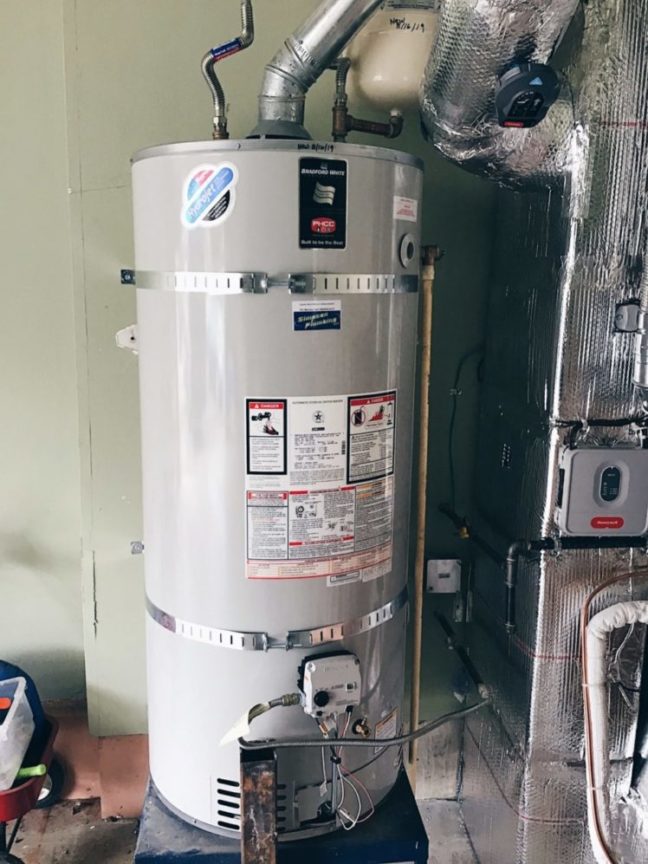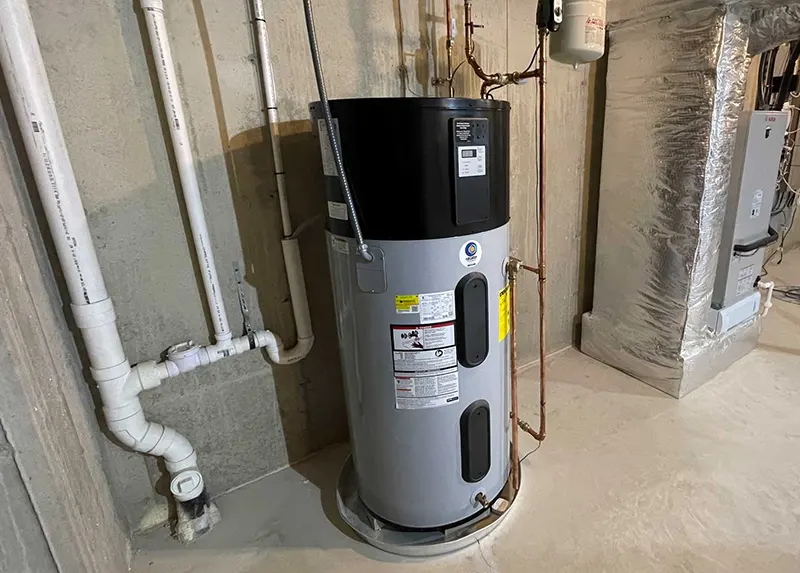Water Heater Installation for Improved Hot Water Efficiency and Effectiveness
Water Heater Installation for Improved Hot Water Efficiency and Effectiveness
Blog Article
Total Guide to Water Heating SystemInstallment and Replacement
Recognizing the details of water heating system setup and replacement is important for home owners seeking to make certain efficiency and dependability in their warm water supply. From selecting the ideal kind and dimension to executing a seamless setup process, numerous aspects must be considered to prevent common mistakes. This overview will give you with the needed steps and understandings to navigate the intricacies of this home enhancement job, while likewise stressing important maintenance practices that can lengthen the life of your system. As you check out these facets, you may find yourself reassessing your existing configuration and recognizing areas for renovation.
Sorts Of Water Heating Systems
When thinking about water heating unit installment and substitute, it is important to recognize the numerous sorts of water heaters readily available out there. The most typical types consist of storage tank hot water heater, tankless water heating units, heatpump hot water heater, and solar water heating units.
Container hot water heater are traditional systems that keep a details volume of warm water, making them readily offered when required. They are typically more economical in advance yet might sustain higher energy expenses in time because of warm loss. In comparison, tankless water heating units provide warm water as needed, eliminating the requirement for storage space. They are energy effective and can save space, but their initial expenses are usually higher.
Warm pump water heating systems make use of power to move warmth from the air or ground to warmth water, offering significant energy savings yet requiring more area and details installment problems. Solar water heaters harness solar energy to heat water, giving an environment-friendly choice with possible long-lasting price savings, although they commonly require a backup system for gloomy days.
Comprehending these choices guarantees educated decisions pertaining to installation and substitute, providing to specific needs and preferences.
Choosing the Right Dimension
Picking the ideal size for a hot water heater is important to ensure optimum efficiency and effectiveness. A device that is too tiny will certainly struggle to meet family demands, causing inconsistent warm water availability and increased power consumption. Alternatively, an extra-large hot water heater can cause unnecessary power waste and greater utility bills.
To determine the appropriate size, consider the household's top warm water use. This can be computed based on the variety of residents and their normal warm water requirements. For instance, a family of four may require a water heating unit with a capacity of 50 to 80 gallons, relying on the use patterns, such as synchronised showers and laundry.
In addition, evaluate the recuperation rate, which measures exactly how quickly a heating unit can restore warm water after it has actually been made use of. For tankless designs, emphasis on the flow rate, determined in gallons per minute (GPM), to ensure it fulfills the home's synchronised need.

Installation Refine Overview
/replacing-a-water-heater-1824920-10-4d53aa4c5c97472ab7cc7e5be4628cae.jpg)
Next, the old device should be separated and removed, making sure to adhere to neighborhood codes and laws relating to disposal. When the old system is out, the brand-new water heating system can be positioned click to read more in position. This action entails linking the water system lines, ensuring that all installations are leak-free and safe and secure.
After establishing water links, it's necessary to attach the power supply, whether electric or gas, complying with the manufacturer's guidelines carefully. When all connections are made, the system should be full of water, and the power can be transformed back on. Ultimately, it's crucial to inspect for leakages and make sure the hot water heater is operating properly before finishing the setup procedure.
Typical Setup Mistakes

An additional regular error is disregarding to follow neighborhood codes and regulations. Stopping working to abide by these criteria can not only bring about safety dangers click resources but may also lead to pricey penalties or the need for pricey reinstallation. Furthermore, inappropriate airing vent is an important issue. Poor ventilation can cause hazardous gas accumulation, posturing significant health and wellness threats.
Stopping working to secure links or utilizing the wrong kind of fittings can lead to leaks and water damages. By preventing these common installment errors, property owners can ensure their water heating system operates safely and successfully, maximizing efficiency and long life.
Upkeep Tips for Longevity
Correct upkeep of a water heating unit is necessary for its longevity and optimum performance. Normal assessments and servicing can protect against expensive repairs and prolong the appliance's life-span. Begin by examining the temperature setup; it ought to generally be set in between 120 ° F and 140 ° F for optimum energy performance and security.
Every 6 months, purge the container to get rid of debris accumulation, which can hinder home heating effectiveness and cause deterioration. To do this, transform off the heating system, connect a hose to the drain valve, and let the water run till it is clear.
When they are worn away,Anode poles should be checked yearly and changed. These rods assist avoid container deterioration by attracting destructive elements in the water.
In addition, examine the pressure safety valve consistently to guarantee it is working correctly. This valve is essential for avoiding too much pressure buildup within the tank.
Finally, consider arranging an expert maintenance check every few years for detailed inspections and servicing. By sticking to these upkeep pointers, home owners can significantly enhance the efficiency, safety, and life expectancy of their hot water heater, making certain trusted warm water for several years ahead.
Verdict
Finally, proper installation check these guys out and upkeep of hot water heater are essential for making certain performance and durability (plumber Denton). Choosing the suitable kind and size, sticking to installation guidelines, and preventing usual mistakes substantially contribute to optimum performance. Normal upkeep checks and expert maintenance help endure functionality and avoid pricey repair services. By recognizing these essential elements, home owners can attain a dependable warm water supply while minimizing possible issues connected to water heater operation.
Recognizing the complexities of water heating system installment and replacement is important for property owners looking for to guarantee efficiency and reliability in their hot water supply.Tank water heaters are typical systems that keep a details volume of warm water, making them easily available when needed. In comparison, tankless water heating systems offer hot water on demand, removing the need for storage space. Selecting a water heating unit that is either too tiny or too big can lead to ineffectiveness, resulting in inadequate hot water supply or excessive power usage.
By recognizing these essential elements, homeowners can achieve a reliable hot water supply while minimizing potential issues connected to water heating unit operation. drain cleaning.
Report this page